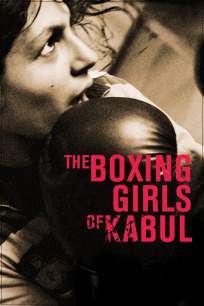Today I learned there’s a skateboarding school in Afghanistan where 40% of its students are female.
In a part of the world where little girls are getting shot at for promoting women’s education, that’s a pretty impressive statistic. In a part of the world where little girls aren’t even allowed to ride a bicycle, that’s a ground-breaking statistic.
Officially, this makes Afghanistan the unlikeliest of title holders for the highest rate of female participation in skateboarding out of any country in the world.
Image by Jake Simkin
War, Taliban, violations of human rights: unfortunately these are the things most associated with Afghanistan today. And yet in a society that has no place for them, 70% of the population of this country is made up of children.
Enter Australian skater Oliver Percovich, who first visited Afghanistan in 2007 with three skateboards in tow. It didn’t take long before he was surrounded by children eager to learn how to skate and his mission became clear. Since then, Olly has permanently relocated to Kabul and dedicated his life with his team to creating Skateistan, a non-profit NGO and full-functioning school where children can not only come to learn in a brand new skatepark facility, but in classrooms where they can choose to explore anything from creative arts to environmental health topics.
Regrettably, there are evident obstacles to teaching girls in a country such as Afghanistan but this NGO has worked closely with the local community and government to gain their full consent and support. It turns out, Afghans largely consider skateboarding a suitable activity for girls, but to respect the local law, they are taught on separate days to boys at the skatepark, by an all-female staff. Skateistan also arranges transport for the girls to make it easier and safer for them to attend.
Image by Jake Simkin
This is a place where six days a week, children can be safe while learning in a supervised and secure private facility. Students include street children, refugees and youth with disabilities that benefit from the program’s special curriculum to provide sports therapy through skateboarding and various activities.
While skateboarding activities are kept off the streets of Kabul as much as possible, the reality of setting up a school in the midst of a warzone however is ever present and this past September, four children who were students, volunteers and youth leaders at Skateistan were tragically killed in a suicide attack while working in the street to support their families outside of school.
Oliver Percovich’s hope with Skateistan is to break the cycle of violence that the children are surrounded by in their hometown and give them the tools and passions they’ll need to change their future.
Since Skateistan was created in 2007, the charity has opened new schools in Pakistan and Cambodia and a second school in Mazar-e-Sharif in Afghanistan is set to open its doors imminently.
In 2009, a feature length documentary on Skateistan was filmed in Kabul, Afghanistan and was named winner of the 2011 Cinema for Peace Berlin award for Most Valuable Documentary. Skateistan: Four Wheels and a Board in Kabul is available to download on iTunes or online here.
Source: http://www.messynessychic.com/2012/11/27/in-the-midst-of-a-warzone-there-is-an-afghani-skateboarding-school-for-girls/






















